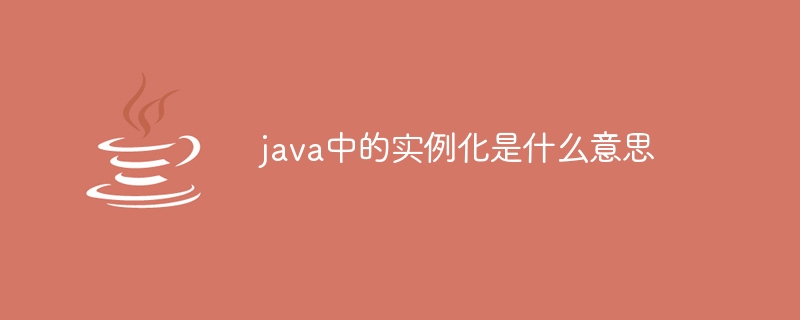Home >Java >javaTutorial >What does instantiation mean in java
What does instantiation mean in java
- 下次还敢Original
- 2024-04-28 23:51:14886browse
In Java, an object is instantiated by using the new keyword followed by the class name. When instantiated, the JVM allocates memory, calls the constructor, and returns a reference. Instantiation is used to create new objects, allocate memory, and initialize the object's state, thereby supporting the creation of multiple objects, storing objects, and manipulating the object's state.

Instantiation in Java
Instantiation, also known as object creation, is creation in Java A process for a new object.
How to instantiate an object?
Use the new keyword to instantiate an object. The new keyword is followed by the class name, and then in parentheses constructor parameters can be passed (if present). For example, to instantiate a class named Person, you can use the following code:
<code class="java">Person person = new Person("John", 30);</code>
Instantiation process
Java Virtual Machine (JVM) perform the following steps to Instantiate an object:
- Allocate memory: Allocate enough memory space for the new object.
- Call the constructor: Execute the constructor to initialize the state of the object.
- Return Reference: Returns a reference to the memory location of the new object.
When to use instantiation?
Instantiation is used in the following situations:
- When creating a new object.
- When allocating memory to an object.
- When initializing the state of the object.
Benefits
Instantiation allows:
- Create multiple objects with different states.
- Store objects in variables and data structures.
- Manipulate and modify the state of objects.
The above is the detailed content of What does instantiation mean in java. For more information, please follow other related articles on the PHP Chinese website!

